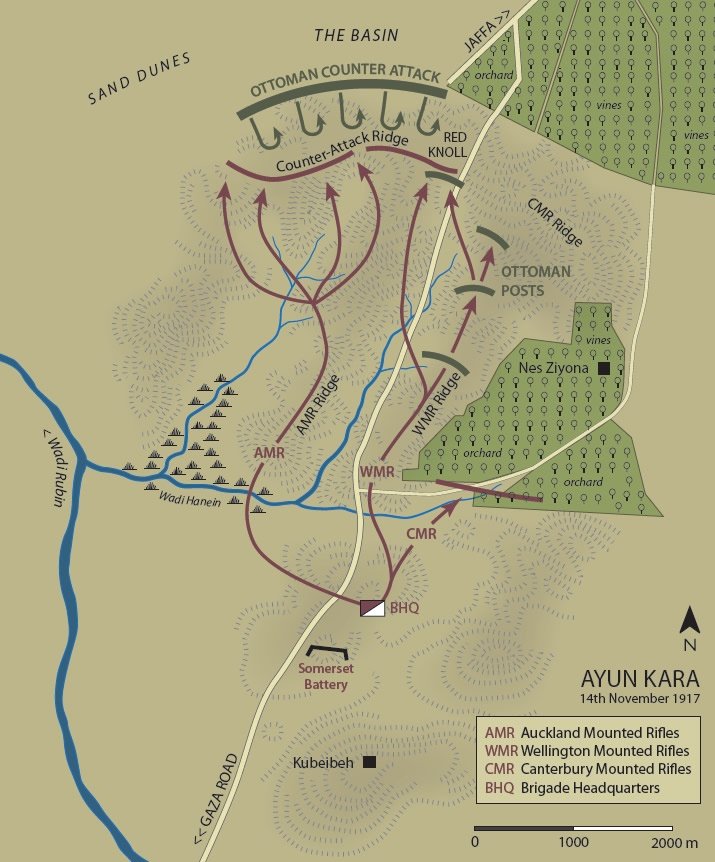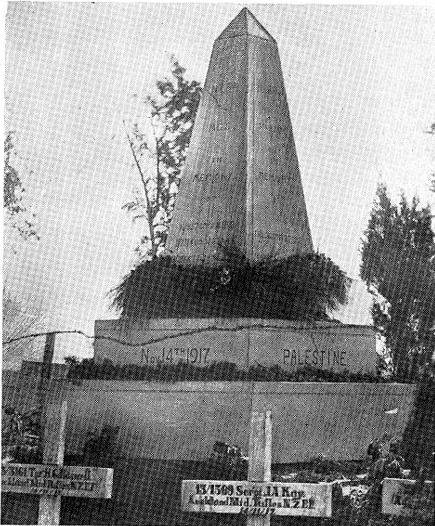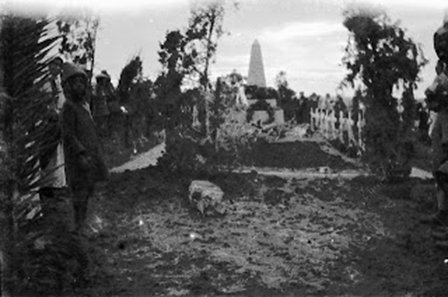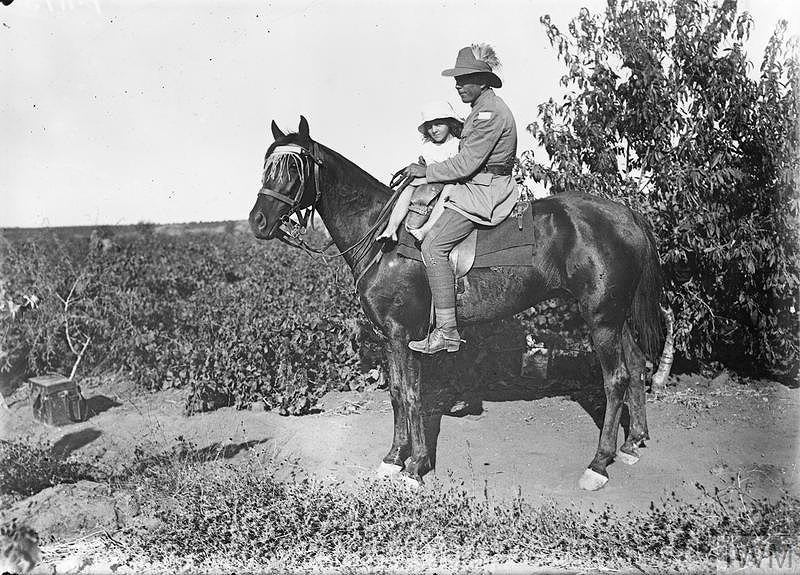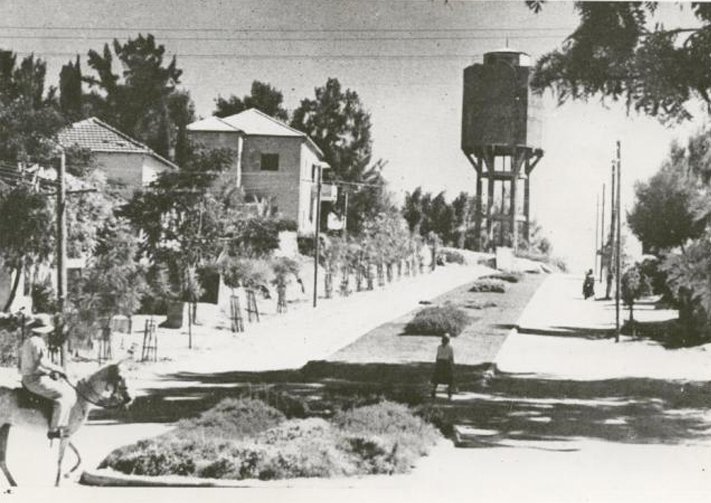Israel NZ friendship forged on battlefield
Plaque of all the kiwi soldiers that died in the battle of Ayun Kara. Hon Alfred Ngaro, patron of the Silver Fern Memorial project, is pointing out the Te Arawa soldier Francis Leopold Flavell.
A service was held on 13 November at the Bethlehem College Chapel in Tauranga, to remember the sacrifice of 53 New Zealanders who died fighting in the 1917 Battle of Ayun Kara.
The battle was significant for NZ, being the first fought wholly under NZ command. Even though NZ regiments were “outnumbered, outpositioned and outgunned” they won the battle on the day.
'Attack on Ayun Kara map', URL: https://nzhistory.govt.nz/media/photo/attack-ayun-kara-map, (Ministry for Culture and Heritage), updated 3-Nov-2017
On 14 November 1917, the New Zealanders encountered an Ottoman force entrenched on a ridge south of Ayun Kara. Although heavily outnumbered, they advanced north along the ridge and attacked the enemy position. The fighting was fierce and the Ottomans mounted several strong counter-attacks throughout the day. The New Zealanders eventually seized the ridge and forced the Ottomans to retreat, but not before suffering some of their highest casualties of the campaign. Of the 800 or so men who took part, at least were killed and around 140 were wounded.
While Israelis remember the battle with gratitude for what New Zealanders accomplished in freeing their people from oppressive Turkish rule, our own nation has failed to give due recognition to the efforts of the three regiments of the New Zealand Mounted Rifles.
Following the battle of Ayun Kara, a friendship developed between the New Zealanders and the Jewish communities of Rishon LeZion and Ness Ziona. In 1918 a wooden memorial obelisk was built for the first anniversary of the battle to commemorate the soldiers who had fallen in battle. Sadly this perished over time. Members of the Jewish communities had undertaken to maintain the graves and the memorial. These soldiers were later re-interred in the British Commonwealth War Cemetery at Ramlah and the original obelisk was eventually lost.
Left to Right: Rishon LeZion War Memorial, New Zealand Troopers KIA, Battle of Ayun Kara; New Zealand Mounted Rifles Troopers First Memorial Service for Troopers KIA, 1917 Ayun Kara Battle; New Zealand Mounted Rifles Trooper With Girl, 1918; Street in RishonLeZion.
A couple of themes from the Bethlehem service were that of remembrance and of the importance of the ‘people to people’ relationship between Israelis and New Zealanders, forged on the battlefield.
Warren Dawson, whose grandfather fought at Ayun Kara, spoke of the words of King George V written on the gates of the Tauranga Domain.
Giving up their own lives that others might live in freedom,
May those who come after see to it that their names shall be not forgotten.
Certainly, Israelis have not forgotten the sacrifice of the New Zealanders. When Warren and his wife Robyn traveled to Israel to trace the footsteps of his grandfather, Israelis said to them over and over again,
You came the farthest, you did the most, you were the youngest nation helping the oldest nation.
Warren shared from his grandfather's diary that accompanied him on the Palestine Campaign in 1917. Four months after the battle of Ayun Kara he wrote, “Went out to put up crosses on the graves of the boys killed on the 14 November.” Warren reflected on the fact that his grandfather played a part in creating a memory path.
Warren has continued that legacy. He is part of the Israel New Zealand Friendship Association which formed in 2017 in recognition of the need to restore the memory of this significant event and the friendship formed at that time. The group is seeking to have a memorial erected in Israel to remember the 18,000 soldiers who fought in the WW1 Palestine Campaign and to honour the 53 who died, to reestablish the memory of their sacrifice and understand this part of history.
Alfred Ngaro and Chris Archer, author of ‘Saviours of Zion’ in Ben Gurion.
More on the Silver Fern Sculpture Project


